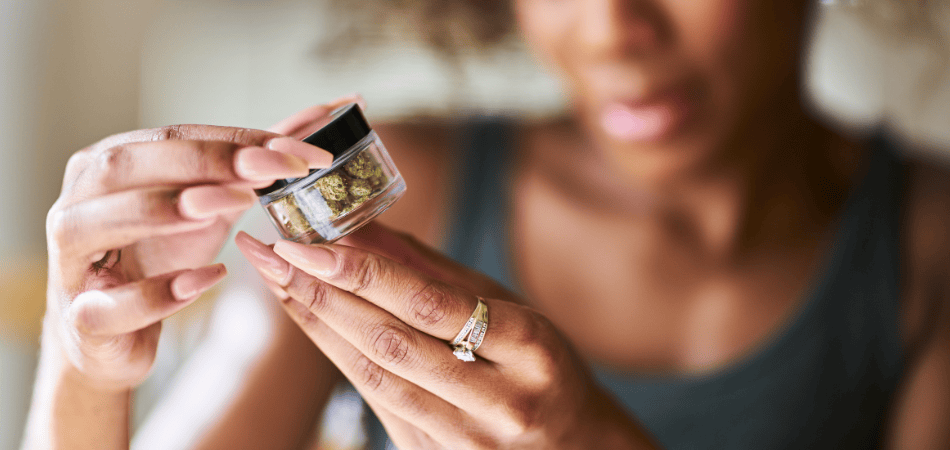
Written by:
Last Updated:
January 2nd, 2025
Drug detox
Drug detox is a critical first step along the path of recovery, but it is often misunderstood. Films like Requiem For a Dream paint nightmarish pictures of the drug detox process, which can potentially scare people away. However, drug detox is rarely as frightening as TV and movies portray, especially if you undergo detox at a professional drug detox clinic like Oasis Runcorn. Drug detox can help you break the cycle of drug addiction, begin the healing process and plan a brighter, drug-free future.
What is drug detox?
Drug detoxification, or drug detox, is a medically supported process that eliminates all traces of drugs from your body to break your physical dependence on them. This dependence develops with chronic drug use as your body and brain get used to the presence of drugs and begin to rely on them to function “normally”.
When you stop taking drugs, it takes a little while for your body to reset, resulting in drug withdrawal symptoms. These symptoms can be very uncomfortable and sometimes even life-threatening, but professional drug detox helps keep you safe and comfortable and manages the withdrawal symptoms. This allows your body to begin the healing process and lays the groundwork for the next stages of recovery.
What types of drug detox are available?
Almost every type of illicit drug can cause physical dependence and so Oasis Runcorn provides detox for a range of different substances, including:
Cannabis detox
Cannabis detox guides the body through eliminating THC, the psychoactive substance in cannabis. This process can provoke mood swings, insomnia and changes in appetite, all of which can lead to relapse without professional support. Click to learn more.
Cocaine detox
This process helps the body eliminate cocaine, leading to potentially severe withdrawal symptoms. As one of the most commonly abused drugs in the UK and worldwide, cocaine detox has helped millions overcome dependency. Click to learn more.
Crack detox
Detoxing from crack, a potent form of cocaine often induces strong cravings and a state of hyperactivity. Crack detox requires professional assistance to manage these intense physical and psychological withdrawal symptoms effectively. Click below to learn more.
Crystal meth detox
Crystal meth detox allows your body to cleanse itself of this potent stimulant, often resulting in withdrawal symptoms like severe depression, anxiety and an intense longing for the drug. These can be incredibly difficult to manage alone, so professional drug detox is always advised. Click to learn more.
Ecstasy detox
Despite common misconceptions, detoxing from ecstasy can also lead to withdrawal symptoms as the body purges the substance from its system. Professional drug detox can help you manage these symptoms effectively and safely. If you would like to learn more, click the button below.
Heroin detox
Heroin detox is known for its challenges, as withdrawal symptoms can be severe, including pain, dangerously high body temperature and extreme nausea. It is a process that should always be managed under professional supervision due to the risk of complications. Click below to learn more.
Ketamine detox
Detoxification from ketamine, an anaesthetic turned recreational drug, often includes managing intense cravings and psychological withdrawal symptoms like anxiety and depression. These symptoms can put you in grave danger and at high risk of relapse, so medical support and guidance are crucial.
LSD detox
Detoxing from LSD, a potent hallucinogen, primarily involves handling withdrawal symptoms like distorted perception and confusion. Due to these potentially hazardous psychological effects, it is essential to have medical support during this detoxification process. Click below to learn more.
Spice detox
Spice detox is particularly difficult due to the unpredictability of this synthetic drug. Withdrawal can cause a wide range of symptoms, including irritability, restlessness and intense cravings, all of which require professional intervention. If you would like to learn more, click the button below.
What are the most common drug withdrawal symptoms?
Drug withdrawal symptoms vary depending on the substance abused, the duration of abuse and individual health and physiology. However, some common symptoms include:
- Anxiety and agitation: As the body adjusts to the absence of the drug, psychological distress, including anxiety and restlessness, is common.
- Fatigue: Drug detox can be physically draining, resulting in feelings of extreme tiredness, lethargy and lack of motivation.
- Insomnia: Difficulty sleeping is a common withdrawal symptom, sometimes accompanied by vivid, unpleasant dreams.
- Sweating: The body may respond to detox by increasing perspiration, often coupled with cold flashes.
- Nausea and vomiting: Detox can cause gastrointestinal distress, leading to nausea, vomiting, diarrhoea and dehydration.
- Muscle aches: Withdrawal from certain drugs, especially opioids, often leads to muscle discomfort and pain.
How long does drug withdrawal last?
The withdrawal process timeline is unique to each individual and largely depends on the type of substance used, the duration of use, and the individual’s overall health. Generally, acute withdrawal symptoms may commence within a few hours to a few days after the last drug use and can last from several days to a few weeks. Post-acute withdrawal symptoms (commonly known as PAWS), which are primarily psychological, can persist for several months or even years and usually require ongoing professional medical support.
Can you do a drug detox at home?
While the idea of home drug detox, or going ‘cold turkey’, may seem appealing due to its perceived convenience, privacy and cost-effectiveness, it is critical to understand that this approach can carry significant risks.
Withdrawal symptoms can vary from mild discomfort to severe physical pain and intense psychological distress. In certain cases, withdrawal can be life-threatening, so professional medical observation is crucial for your safety. Without professional support, there is also a higher risk of relapse due to the intensity of withdrawal symptoms. If you do relapse, it can lead to a potentially fatal overdose, as your tolerance will have decreased during the home drug detox attempt.
In addition to the physical symptoms, psychological withdrawal can be challenging to manage alone. Feelings of anxiety, depression and intense cravings are common and, without the right support, can be overwhelming.
Drug detox at Oasis Runcorn
Oasis Runcorn provides comprehensive inpatient drug detox tailored to help you safely navigate through the demanding process of drug withdrawal. We ensure a holistic approach to drug detox grounded in evidence-based treatment methods. Choosing Oasis Runcorn drug detox clinic comes with several significant advantages:
- A residential setting: Oasis Runcorn facility offers a calm, secure environment to undergo drug detox. Our residential setting provides a haven, protecting you from external triggers and exposure to drugs, which is crucial in the early stages of recovery.
- Round-the-clock care: Another benefit of inpatient drug detox is that we can support you 24/7 during the drug withdrawal process. Our team of medical professionals is always on hand to monitor and manage withdrawal symptoms, providing immediate intervention if complications arise.
- Full medical assessment and personalised detox plan: Every client undergoes a thorough medical evaluation upon admission. This comprehensive assessment considers your physical health, psychological state and substance use history, forming the basis for your personalised drug detox plan.
- Medical drug detox where necessary: Oasis Runcorn acknowledges the challenging nature of withdrawal symptoms. Where necessary, medications are used under the supervision of healthcare professionals to manage these symptoms, alleviating discomfort and reducing potential risks.
- Drug rehab: Oasis Runcorn believes in the power of a comprehensive approach to addiction treatment. Our rehab therapy programmes address the psychological aspects of drug abuse and dependency, providing the necessary tools to prevent relapse and promote long-term recovery.
Myths about drug detox
Myth: Drug detox alone is enough
Fact: Drug detox is an essential first step towards recovery, but it is not a cure. Detox helps manage the physical aspects of withdrawal, but long-term therapy, lifestyle changes, and sometimes medication are all crucial aspects of successful recovery.
Myth: Drug detox is always painful and unbearable
Fact: Detox can be uncomfortable due to drug withdrawal symptoms, but medical professionals at a professional drug detox clinic like Oasis Runcorn can manage these symptoms effectively, making the process more comfortable and safer.
Myth: Drug detox is only for those with severe addiction
Fact: Drug detox can be useful for anyone who is physically dependent on a substance. Even those with moderate substance use can benefit from detox, reducing the risk of potential complications associated with drug withdrawal.
Myth: You can detox from drugs quickly
Fact: The drug detox timeline varies from person to person depending on the type of substance used, how long it has been used and the person’s overall health. Some people may complete drug detox in a few days, while others require many weeks.
Myth: Relapse means detox didn’t work
Fact: Relapse doesn’t mean failure, or that detox didn’t work. Drug addiction is a chronic condition, and relapse is a common part of recovery. Use relapse as an indicator to reassess and adjust your treatment plan.
How to start drug detox
Starting your journey towards recovery at Oasis Runcorn is as simple as reaching out. Our team of compassionate professionals is ready to guide you through the drug detox process and support you every step of the way. Contact us today to learn more about our drug detox programmes.
Frequently asked questions
- Alcohol: Symptoms start within 6-12 hours, peaking at 24-48 hours, and can last up to a week.
- Opioids: Symptoms usually begin within 6-12 hours, peaking at 48-72 hours, and can last 1-2 weeks.
- Benzodiazepines: Withdrawal can last several weeks to months, depending on the duration of use and tapering process.
- Stimulants: Symptoms can last from a few days to a couple of weeks.
Withdrawal duration can vary greatly, and medical supervision is recommended.














